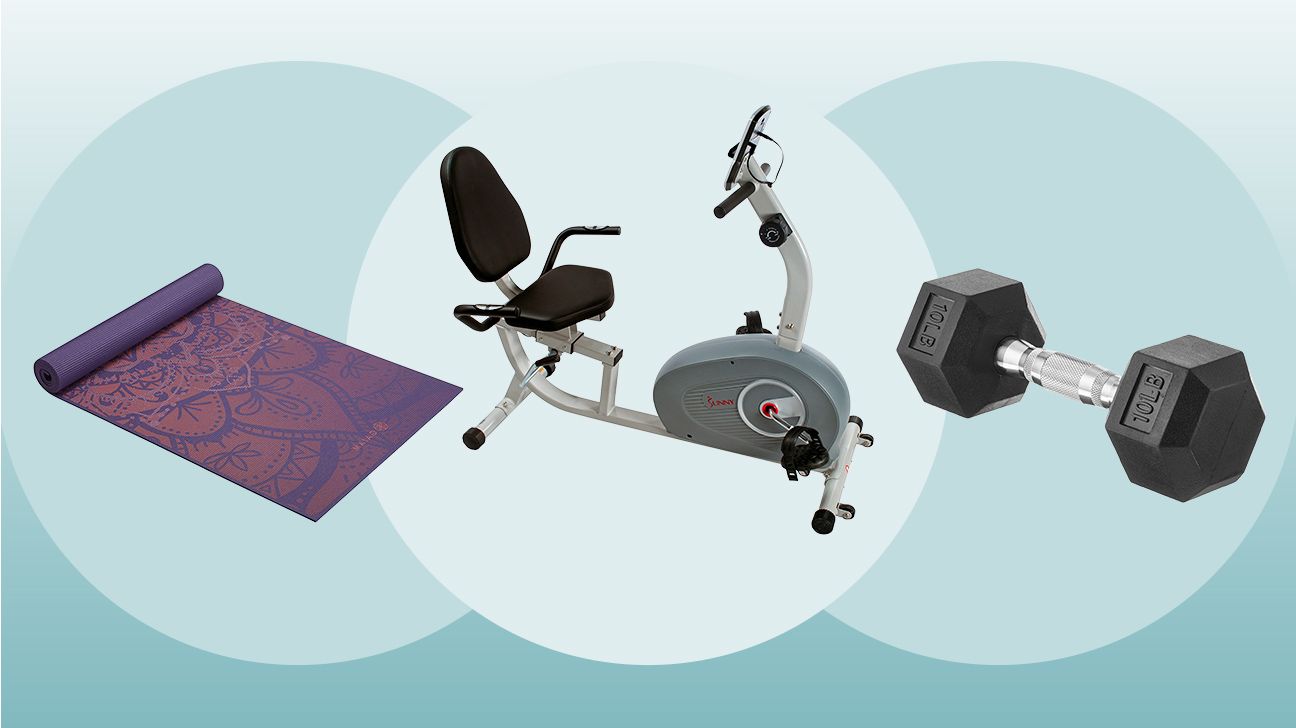Key takeaways
- Some loss of muscle mass is inevitable with aging, but proactively exercising can help limit this and strengthen muscles to prevent falls and injury.
- A manual treadmill can help mimic outdoor walking and is relatively affordable.
- Other beneficial home fitness equipment for older adults include resistance bands and basic dumbbells.
Regular exercise is particularly
Staying physically active can help older adults maintain independence and
For adults ages 65 years or older, the
- 150 minutes per week (about 20 minutes per day) of moderate-intensity activity, such as brisk walking
- 75 minutes per week (about 10 minutes per day) of vigorous-intensity activity, such as jogging or running
- an equivalent mix of moderate and vigorous activity
To meet these recommendations, it can be helpful to have gym equipment at home.
Biking is a great way to build lower body strength and raise your heart rate. It’s also low impact and gentle on joints.
They are available in upright, folding, and recumbent designs. Upright bikes offer a more traditional exercise bike experience (think Peloton). Meanwhile, recumbent styles help take additional pressure off your joints and may be more comfortable if you experience limited mobility or joint pain.
Running is a high impact activity that may not be suitable for everyone. However, treadmills are still beneficial for keeping a regular walking routine when weather or other barriers stand in the way of getting outside.
Specifically, a manual treadmill can better mimic the efforts of outdoor walking and require a little more effort than one with a motorized belt.
Compared with a treadmill, an elliptical is a better option if you’re prone to knee injuries or have joint pain, as it involves more low impact exercise.
An elliptical machine works by standing on pedals and using a gliding motion to move your legs back and forth. Some also include moving handles to engage your upper body.
Strength training is particularly important for maintaining muscle mass and supporting everyday activities.
The CDC recommends getting at least 2 days of strength training per week. Dumbbells and resistance bands are must-have tools for this and can easily be tucked into a closet when you’re done.
Balance and mobility become increasingly important as we age.
Here is the best home equipment that’s needed for balance and stability workouts. The Bosu ball is a particular favorite that can help add a balance component to essential strength and stability exercises.
Staying active as you age can help prevent certain health conditions, reduce your risk of falls, and maintain your independence.
As they each offer their own benefits, be sure to include cardio, strength training, and balance exercises in your weekly routine.
With seemingly endless equipment options available for home workouts, how you choose to stay active is up to you. However, it’s always a good idea to check with a healthcare professional before incorporating anything new into your routine.






